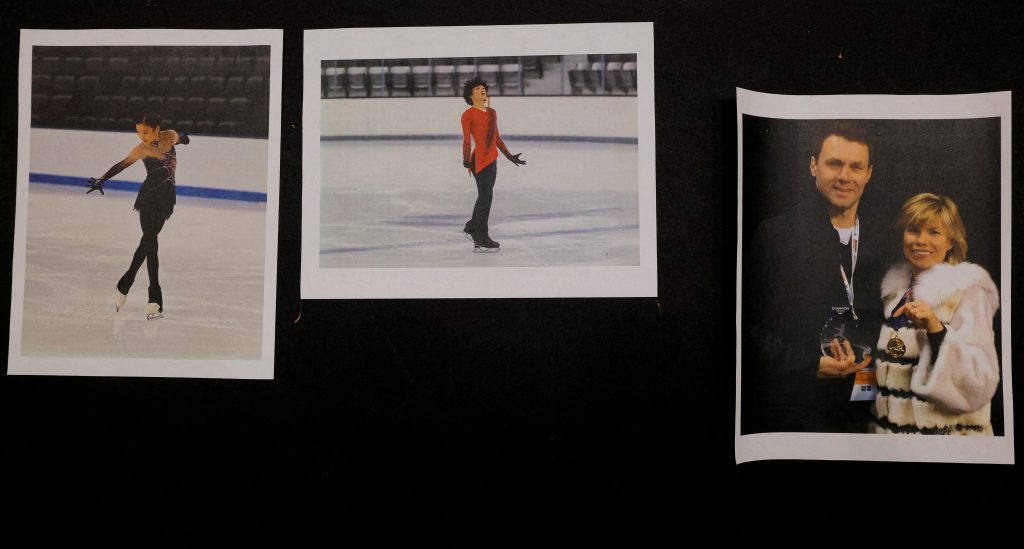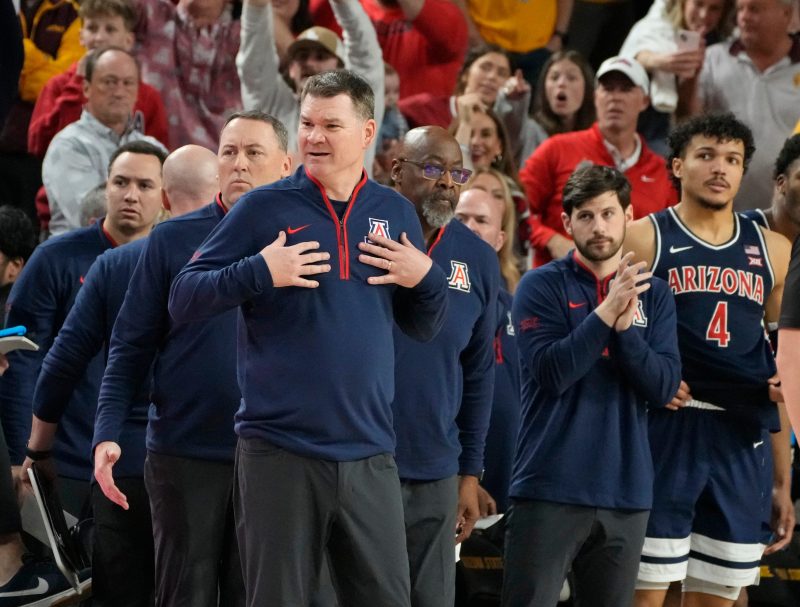‘We’re all grieving this’: Tragedy far-reaching in figure skating world

At an ice rink near Washington, local residents piled flowers and stuffed animals on a table in the lobby.
In the outskirts of Boston, the leader of a storied figure skating club choked back tears.
Yet as the figure skating community continued to grapple with the deaths of more than 15 skaters, coaches and parents in a fatal plane crash Wednesday night, the grief was not limited to the clubs and towns that lost some of their own.
In the days since the tragedy, its ripple effects have been felt in ice rinks and skating clubs across the country and even around the world, from Raleigh and San Francisco to Montreal and Tallin, Estonia, where the European Figure Skating Championships are taking place. There are teenage skaters who lost best friends. Olympic veterans and hopefuls who lost coaches. Their shared grief stretches across disciplines, time zones and even generations, reaching those in almost every corner of the sport, in one way or another.
‘What you learn in skating is you fall down constantly, but you get up,’ 1956 Olympic champion and U.S. Figure Skating Hall of Fame inductee Tenley Albright told USA TODAY Sports on Friday. ‘And so that’s what we need to do now, except we’re not quite sure how to get up.’
The collision between a small commercial flight and a military helicopter near Washington Reagan National Airport is the deadliest U.S. aviation disaster in over two decades. Authorities had yet to release the names of the victims as of Friday night but indicated that all 67 people aboard the two aircrafts are presumed to be dead.
The fact that so many of the passengers on American Airlines 5342 were returning from the same event − a development camp for promising young figure skaters, held in Wichita, Kansas after the 2025 national championships − made it all the more tragic.
While U.S. Figure Skating has yet to identify any of the skaters on board, USA TODAY has confirmed that some of them were as young as 11 years old.
“We’re all grieving this,’ 1968 Olympic gold medalist Peggy Fleming said, ‘on all kinds of levels.’
The president of the International Skating Union, which is the international federation that oversees figure skating, said Friday that the organization intends to pay tribute to the victims of the crash at the 2025 world championships, which will take place in Boston in March.
At the European championships, a moment of silence preceded the start of Thursday’s events.
‘The only thing that the skaters over there can talk about is how the plane crash has affected them,’ said Jackie Wong, a figure skating analyst for Rocker Skating who has been involved in the sport in various capacities for more than 25 years. ‘Because they knew people who were there, and they knew people who knew people who were there. It’s heartbreaking.’
The figure skating community in the United States is spread out across nearly 900 member, high school and collegiate clubs, according to U.S. Figure Skating. But in recent years, many of the sport’s elite skaters have worked and trained together at a handful of regional hubs, including those in Boston, Delaware and the Washington D.C. area − all of which lost skaters, coaches and parents in Wednesday’s crash.
Wong said the incident has had intense emotional ripple effects throughout the figure skating community, in part because so much of that community just convened in Wichita for the national championships. It also speaks to changing dynamics within the sport, he said.
‘I think in decades past, there was more of a feeling of rivalry,’ Wong explained. ‘Skaters from different countries, generally, would train in their own countries. And now, there’s a lot of cross-pollination across countries, across geography, across coaches. … There is a lot of camaraderie, a lot of being happy with other people’s successes − even if it’s not your own.’
The relatively small, tight-knit nature of elite figure skating meant that few people in the sport were more than a few degrees of separation away from someone who was on the flight.
In an interview with CBS News on Friday, for example, retired Olympic champion Brian Boitano recalled competing alongside Vadim Naumov and Evgenia Shishkova, the 1994 pairs world champions from Russia who later became highly-regarded coaches in Boston. Albright remembered seeing Spencer Lane, 16, skate in a professional show put on by her daughter. And in local television news reports, executives from clubs and ice rinks across the country shared stories of people they knew who were impacted, or ways that their own figure skating communities were grieving.
‘You can see it on the online forums, social media,’ said Laura Patterson, a coach at AZ Ice in Glibert, Arizona who said she worked as an official in Wichita last week. ‘I mean, we’re all friends nationwide, whether you’re officials or coaches. Everyone’s been reaching out to everyone during this time right now.’
For many in the skating community, including Albright and Fleming, the tragedy immediately brought back memories of the last aviation disaster that hit the sport: A plane crash on Feb. 15, 1961 that killed all 18 members of the U.S. figure skating team, plus 16 coaches, officials, judges and family members.
Fleming’s coach, Billy Kipp, was among those on board the flight, which was en route to the world championships in Prague. She was 12 years old at the time.
‘Our community’s been through this before and we know how to stay strong and help each other. So we will get through this,’ said Fleming, now 76.
‘My heart goes out to all those families that lost their kids and lost their mothers and coaches. I mean, it’s just terrible. It’s just terrible that we have to go through this again.’
Now, like then, the figure skating community is grieving both the people that have been lost but also the bright futures that have been lost with them.
U.S. Figure Skating hosted the national development camp in Wichita, which ran from Monday to Wednesday, to expose the top young skaters in the country to high-level training. The camp was filled with possible 2030 and 2034 Winter Olympians, and the coaches − like Naumov and Shishkova − who were expected to help lead them to the top of the sport.
‘When you lose coaches like this, you lose the future of the sport as well,’ Doug Zeghibe, the chief executive of the Skating Club of Boston, said in a news conference Thursday.
Albright, 89, said the club will miss the expert instruction and guidance of its coaches − and miss seeing some of their teenage skaters walking through the front door of the club’s facility in Norwood, Massachusetts. She said it will be strange not to be able to watch their intensity, their smiles, their improvement. But, like in 1961, they will do their best to move on.
‘There were other skaters and other coaches who tried to fill in, and in many ways did,’ Albright recalled. ‘But the loss that we all feel is always there.’
Follow the reporters on social media @tomschad.bsky.social and @joshlpeter11.





